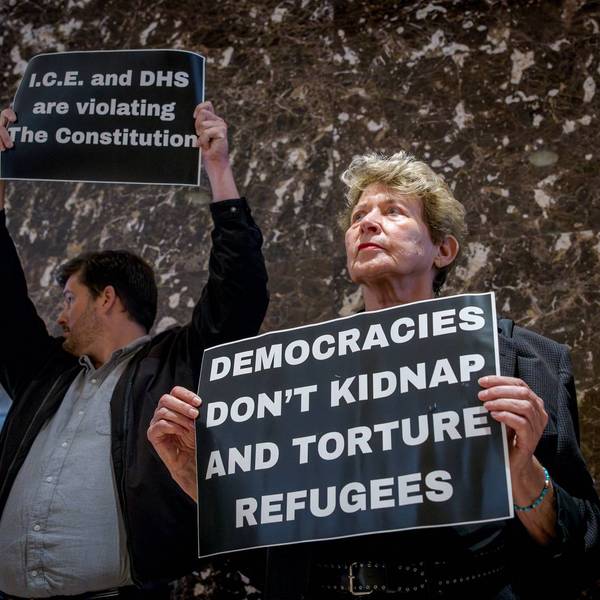The Danish Parliament on Tuesday approved a controversial law which allows authorities to seize money and valuables from refugees, as well as delay family reunification--treatment which critics decry as "morally horrible" against those fleeing war and other violence.
"The bill presented by the center-right minority government of prime minister Lars Lokke Rasmussen was approved by 81 of the 109 lawmakers present, as members of the opposition Social Democrats backed the measures," the Guardian reported.
The law will allow police to search refugees upon arrival and confiscate any non-essential items worth more than 10,000 Danish kroner (roughly $1,450) that have no sentimental value to their owner. The bill also includes a measure that raises the waiting period from one year to three before refugees can apply for their families to to join them. It also permits officials to consider an individual's "integration potential" in resettlement cases, increases administrative fees, and slashes temporary residence permits to two years.
Parliament members justified the action, saying the law "is about creating equality between migrants and Danes," as the seizures are supposedly intended to cover the cost of each asylum-seeker's maintenance by the state, which they compare to Danish citizens on welfare benefits.
In its recent report (pdf) on the legislation, the UNHCR said the law is "evidently aimed at conveying a message to make it 'less attractive' to seek asylum in Denmark, and is a deeply concerning response to humanitarian needs."
The report continues:
The signal Denmark's introduction of restrictions sends to other countries in the world, including the major refugee hosting countries and European countries that need to strengthen their asylum and integration capacity in order to receive higher numbers o f refugees, is worrisome and could fuel fear, xenophobia and similar restrictions that would reduce--rather than expand--the asylum space globally and put refugees in need at life-threatening risks.
"Morally it is a horrible way to treat people fleeing mass crimes, war, rapes," said Pernille Skipper, an MP and legal affairs spokesperson for the left-wing Enhedslisten party. "They are fleeing from war and how do we treat them? We take their jewellery."
In 2015, Denmark accepted roughly 20,000 asylum seekers, or 2 percent of the total number of arrivals to Europe. Earlier this month, the country imposed new security checks at its southern border to stem the tide of migrants.
Authorities in Germany and Switzerland have also begun seizing assets from asylum seekers, which the Guardian said is in keeping with the trend of "scare tactics and physical deterrents to deal with the biggest migration crisis since the second world war." European leaders met in Amsterdam on Monday to discuss plans to further restrict the passport-free Schengen zone.



